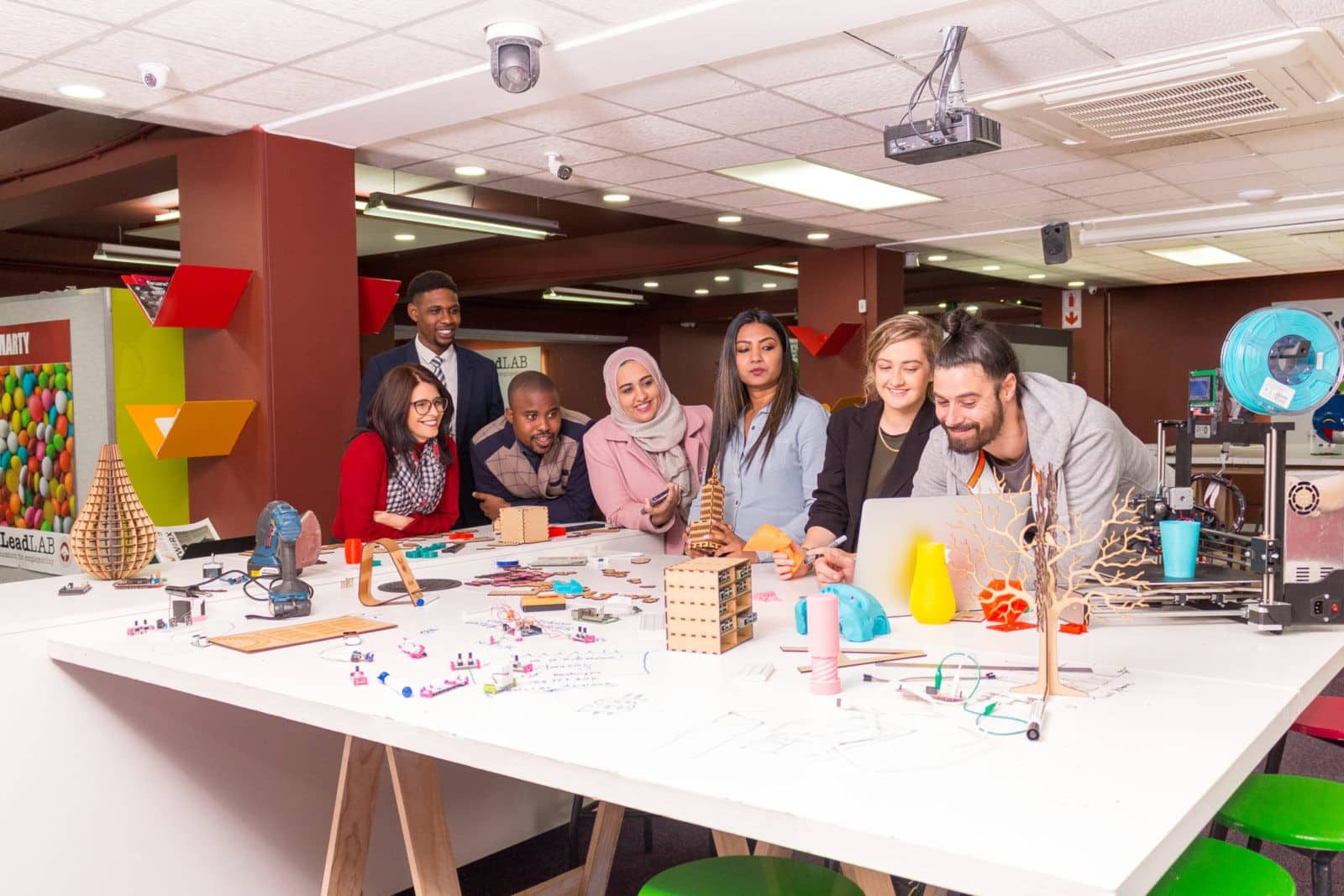Makerspaces offer Authentic Student-Centred Learning and Skills for Employability in the 21st Century
By Prof Ahmed Shaikh
In the past week, discussions at the World Economic Forum (WEF) have once again highlighted how we are living in a time of accelerated change and disruption in which society faces increasing pressure to evolve its systems and processes to meet the demands of the 21st century and beyond. Within this perspective education is the most sophisticated social technology of societal transformation for co-creating and contributing to sustainable, regenerative and thriving futures.
However, the global Higher Education (HE) sector finds itself at a critical juncture in this period: The profound impact of disruptive and exponential technologies, shifting labour market dynamics coupled within dramatically-new needs for skills in the creative economy are all challenging the very raison de etre of HE. Vexing questions are being asked as to whether HE is able to adapt quickly enough to match the rate of evolution of new types of jobs, professions and occupations that require a new set of skills for agile and collaborative work teams. Current and prospective ‘users’ of HE are increasingly challenging the model, approach and impact that traditional HE is able to offer.
But it is not all doom and gloom. Each industrial revolution, with its general purpose technologies, has also led to new employment opportunities, with greater decentralisation of the economy, and increasing distribution of power and resources across the economy.
In the context of the Fourth Industrial Revolution, the powerful and lucrative alliance between Artificial Intelligence (AI) and a data-driven society is redefining how business and commerce benefits from the digital footprints of countless human interactions daily. The ever expanding range of exponential technologies are already impacting virtually every facet of human endeavour from healthcare and education to the economy and the planet.
Given this increasing social and economic complexity in all domains of human life, the time is opportune to re-conceptualise the purpose and design of education. It is in this context that progressive HE institutions are exploring new ways of engaging ‘users’ of HE for more meaningful educational outcomes and employability competencies.
A crucial element for business and educational leaders is to align workplace needs with higher education preparation systems to promote student success in a career after graduation, rather than simply focusing on traditional academic achievements or grades.
Academic Makerspaces are therefore increasingly being looked to as a method for engaging learners in creative, higher-order problem-solving and active learning skills through hands-on design, construction, and iteration. Consequently, the interdisciplinary, collaborative and empowering natures of these makerspaces help prepare students for a future that one cannot imagine.
Makerspaces provide powerful contexts and opportunities for students to learn and develop new skills and draws upon the innately human desire to make things using our hands and our brains. They provide this necessary outlet for students, fuelling engagement, creativity and curiosity. Research has shown that students who participate in activities involving innovation were inquisitive, imaginative and motivated and they are eager to solve real problems that could help people.
Student-centred learning in a Makerspace can also empower students, helping them to shift from being passive consumers of information and products to active creators and innovators. It allows students to take control of their lives, be more active, and be responsible for their own learning. Furthermore, it is the ‘process of making’ that emerges as a powerful experience for students, not necessarily the completion of a final project. These experiences can significantly enhance a student’s thinking and work in many different fields.
There is a strong body of research that shows how active, meaningful, project or problem-based learning activities coupled with flipped learning and student-centred (or constructivist) pedagogies can significantly improve students’ acquisition of skills and retention of learning. In addition, if such pedagogies are deployed in 21st century learning environments such as makerspaces, this provides formidable opportunities to radically reform education and training for the creative economy of the current era.
Education within a Makerspace fosters curiosity, tinkering, and iterative learning, which in turn leads to better thinking through better questioning. This learning environment fosters enthusiasm for learning, student confidence, and natural collaboration. Ultimately the outcome of maker education and academic makerspaces leads to determination, independent and creative problem solving, and an authentic preparation for the real world by simulating real-world challenges.
Honoris United Universities, through one of its partner institutions in South Africa, REGENT Business School, has established its academic makerspace under the auspices of the iLeadLAB.
The iLeadLAB provides its students, alumni communities and business partners opportunities to bridge the gap between learning and work through Science, Technology, Engineering, Arts and Mathematics (STEAM) immersion, work-related learning and internship bootcamps, thus reducing the education-job mismatch and increasing employability competencies of its graduates.
Through these new innovations, Honoris United Universities is challenging the idea of a traditional classroom by exploring how new physical and virtual learning environments can affect and improve not only learning outcomes but empower the students and unemployed individuals to become innovative entrepreneurs and productive members of an inclusive economy.
Professor Ahmed Shaikh is an academic and researcher and serves as the Managing Director or REGENT BUSINESS SCHOOL, in South Africa


